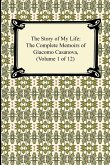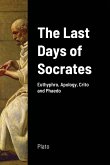Confessions (401) is the work of Saint Augustine, a Roman theologian and bishop responsible for some of the core doctrines of today's Catholic church. His literary works, including The Confessions, The Enchiridion, and On Christian Doctrine, are commonly viewed as foundational works of Christian theology and Western philosophy. Bishop of Hippo Regius-in modern day Algeria-from 395 to his death in 430, Augustine helped to justify and consolidate the role of Christianity in the Roman Empire and was canonized as a saint for his efforts. A young man does poorly in school, steals from his neighbor's orchard, and has a son with a woman to whom he is not married. These are some of the core personal experiences detailed by Augustine in his autobiographical and theological work Confessions, in which he grows from a life of sin to accepting God and the Christian faith. Interspersed with stories of his life and conversion are descriptions and critiques of Neoplatonism, Manichaeism, and astrology, systems of belief and understanding which, for Augustine, fall short of the vision of humanity and salvation offered by Christianity. Throughout this text, Augustine encourages readers-especially those who have led troubled lives-not only to convert to Christianity, but to understand the inherent imperfection of all humanity and to envision the ultimately hopeful message of transformation and forgiveness offered by faith in God. Confessions is at heart a Christian text, but it is also essentially human. Augustine is remembered not just as a saint and Christian leader, but as a figure who precipitated the evolution of Western thought. Augustine's Confessions is a foundational work of autobiographical and philosophical writing, influencing such writers as Blaise Pascal, Jean Jacques Rousseau, Thomas Aquinas, Bertrand Russell, and Friedrich Nietzsche. Its personal nature and depth of honesty are considered formal innovations in autobiography and memoir writing, and its meditations on God and human nature have made it an essential text for philosophers and theologians for centuries. This edition of Saint Augustine's Confessions is a classic of autobiography and Christian theology reimagined for modern readers. Since our inception in 2020, Mint Editions has kept sustainability and innovation at the forefront of our mission. Each and every Mint Edition title gets a fresh, professionally typeset manuscript and a dazzling new cover, all while maintaining the integrity of the original book. With thousands of titles in our collection, we aim to spotlight diverse public domain works to help them find modern audiences. Mint Editions celebrates a breadth of literary works, curated from both canonical and overlooked classics from writers around the globe.
Hinweis: Dieser Artikel kann nur an eine deutsche Lieferadresse ausgeliefert werden.
Hinweis: Dieser Artikel kann nur an eine deutsche Lieferadresse ausgeliefert werden.
"[Wills] renders Augustine s famous and influential text in direct language with all the spirited wordplay and poetic strength intact." Los Angeles Times
"[Wills s] translations . . . are meant to bring Augustine straight into our own minds; and they succeed. Well-known passages, over which my eyes have often gazed, spring to life again from Wills s pages." Peter Brown, The New York Review of Books
"Augustine flourishes in Wills s hand." James Wood
"A masterful synthesis of classical philosophy and scriptural erudition." Chicago Tribune
"[Wills s] translations . . . are meant to bring Augustine straight into our own minds; and they succeed. Well-known passages, over which my eyes have often gazed, spring to life again from Wills s pages." Peter Brown, The New York Review of Books
"Augustine flourishes in Wills s hand." James Wood
"A masterful synthesis of classical philosophy and scriptural erudition." Chicago Tribune








